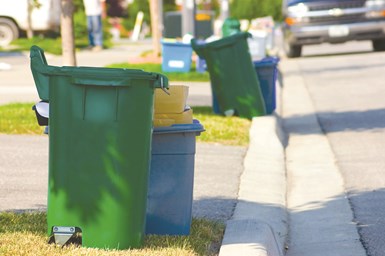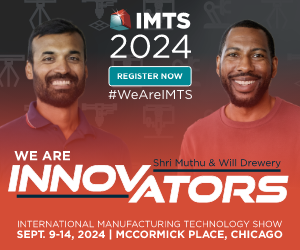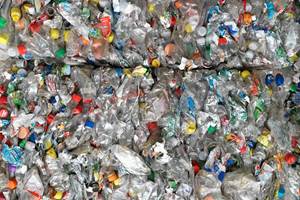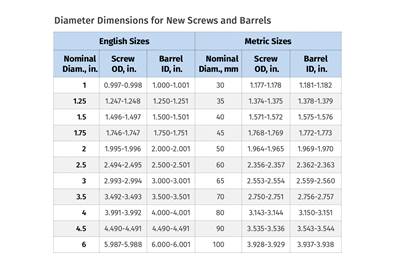Sustainability: It Won’t Happen Overnight
Plastics has made great strides in becoming a part of the circular economy. The industry and its partners realize more needs to be done. Is there time?

I don’t think there is any doubt that our industry is taking sustainability — or maybe you want to call it the circular economy or the green economy — seriously. Literally not a day passes without me receiving press releases from materials companies (polymer producers and compounders), machine builders of all kinds and processors promoting their efforts in this area. Next year’s NPE2024, the giant plastics show, will have a heavy emphasis on sustainability, highlighting the advances being made in the businesses of producing and processing plastics.
I applaud the Plastics Industry Association (PLASTICS) for its new “Recycling is Real” campaign, which endeavors to educate policymakers on the real progress the industry is making on that front. And I also commend the American Chemistry Council, through its America’s Plastics Makers unit, for their efforts in their TV and social media spots to educate the public on plastics and sustainability.
I just hope people take heed. We live in an increasingly impatient world, driven I feel more by emotion, often combined with fury and vitriol, than facts. Maybe this is because “facts” aren’t so easy to come by today. That aside, ours is a complicated industry with many moving pieces and the challenges we face require collaborations of companies throughout the supply chain, and these take time. Our responses to problems and challenges tend to be knee-jerk — “There are bottles in the ocean! Ban the bottles! There’s a bag in the street! Ban the bags!” (Or make them thicker so they won’t be as easily carried by the wind, which was one local lawmaker’s idea some years back.)
Matt Seaholm, CEO and president at PLASTICS, knows full well that change takes time. Responding to questions from Associate Editor Matt Stonecash in an article published on ptonline.com, he had this to say about current recycling rates, estimated by the EPA as 8.7% in 2018, “The rate needs to go up. We have big problems in sorting and collection. We need to make it convenient for consumers with curbside programs. Many MRFs (material recovery facilities) are operating older technologies that have not kept up with changes in plastic packaging. The industry needs partners because we do not control the whole process. We need to surround the table with people who understand that recycling can work, and that industry is ready and willing.”
The good news is MRFs are starting to embrace new technologies. Last year, Dow and Waste Management (WM) announced they’d collaborate on a venture to improve residential recycling for flexible films by enabling consumers in select markets to recycle these materials directly in their curbside recycling. At that time, WM said it expects to invest over $800 million through 2025 to improve and enhance recycling infrastructure, including specialized technology that will enable WM to sort plastic films. And true to its pledge, WM recently opened a waste recovery center in near Cleveland, equipped with new technology to accommodate flexible films.
But there are other tables, and seated at those are groups that are not friendly to plastics. And these groups have a lot of resources and plenty of muscle. Just a few months ago, former New York City Mayor Michael Bloomberg, through Bloomberg Philanthropies, launched an $85 million campaign called Beyond Petrochemicals, which his website says will “turbocharge existing efforts led by frontline communities to block the expansion of more than 120 proposed petrochemical projects concentrated in three target geographies – Louisiana, Texas and the Ohio River Valley.”
I am proud to have spent more than 35 years covering what I feel is an extremely creative industry, one that has contributed tremendous value with innovations that have enhanced a range of industries that include medical, packaging, automotive, consumer products and electronics. I have no doubt we are up to the challenge of making our products in a more sustainable way. I hope we have the time.
Related Content
Six Years in the Waiting, PLASTICS Igniting a ‘Spark’ at NPE
New features of NPE2024 aim to “bring the whole plastics ecosystem together to innovate, collaborate and share findings.”
Read MoreRegister Now for PTXPO 2023
New trade show for plastics processors to evaluate new technology will be held for the second time in March in Rosemont, Ill., with some new wrinkles.
Read More50 Years...600 Issues...and Still Counting
Matt Naitove marks his first half-century in plastics reporting, with a few of his favorite headlines.
Read MoreLots to Say About Recycling
In our July issue, we have two features with a recycling bent. We also have a new editor on board to track and report on future developments in this critical industry segment.
Read MoreRead Next
People 4.0 – How to Get Buy-In from Your Staff for Industry 4.0 Systems
Implementing a production monitoring system as the foundation of a ‘smart factory’ is about integrating people with new technology as much as it is about integrating machines and computers. Here are tips from a company that has gone through the process.
Read MoreTroubleshooting Screw and Barrel Wear in Extrusion
Extruder screws and barrels will wear over time. If you are seeing a reduction in specific rate and higher discharge temperatures, wear is the likely culprit.
Read MoreAdvanced Recycling: Beyond Pyrolysis
Consumer-product brand owners increasingly see advanced chemical recycling as a necessary complement to mechanical recycling if they are to meet ambitious goals for a circular economy in the next decade. Dozens of technology providers are developing new technologies to overcome the limitations of existing pyrolysis methods and to commercialize various alternative approaches to chemical recycling of plastics.
Read More


























